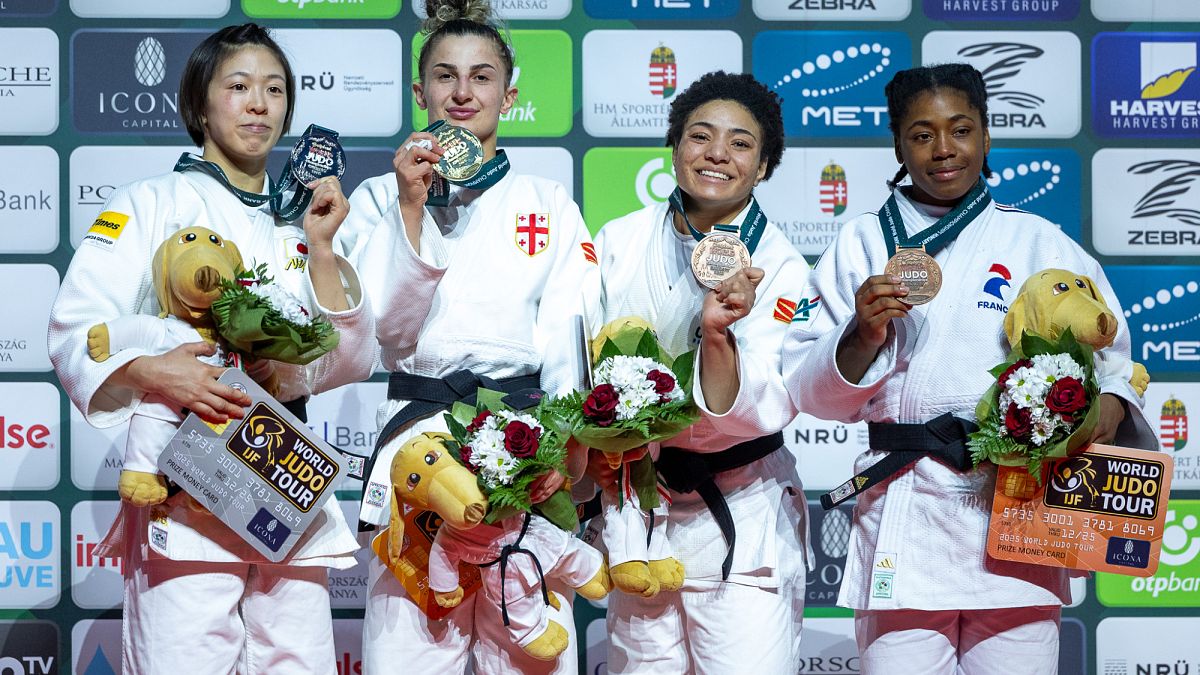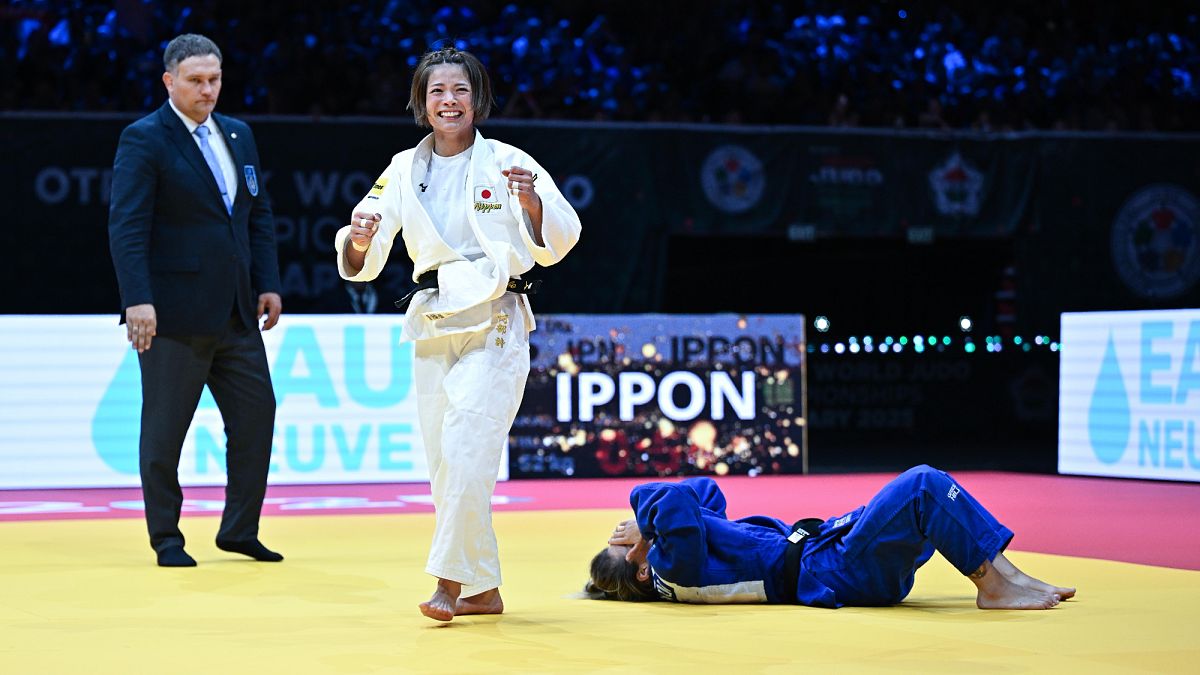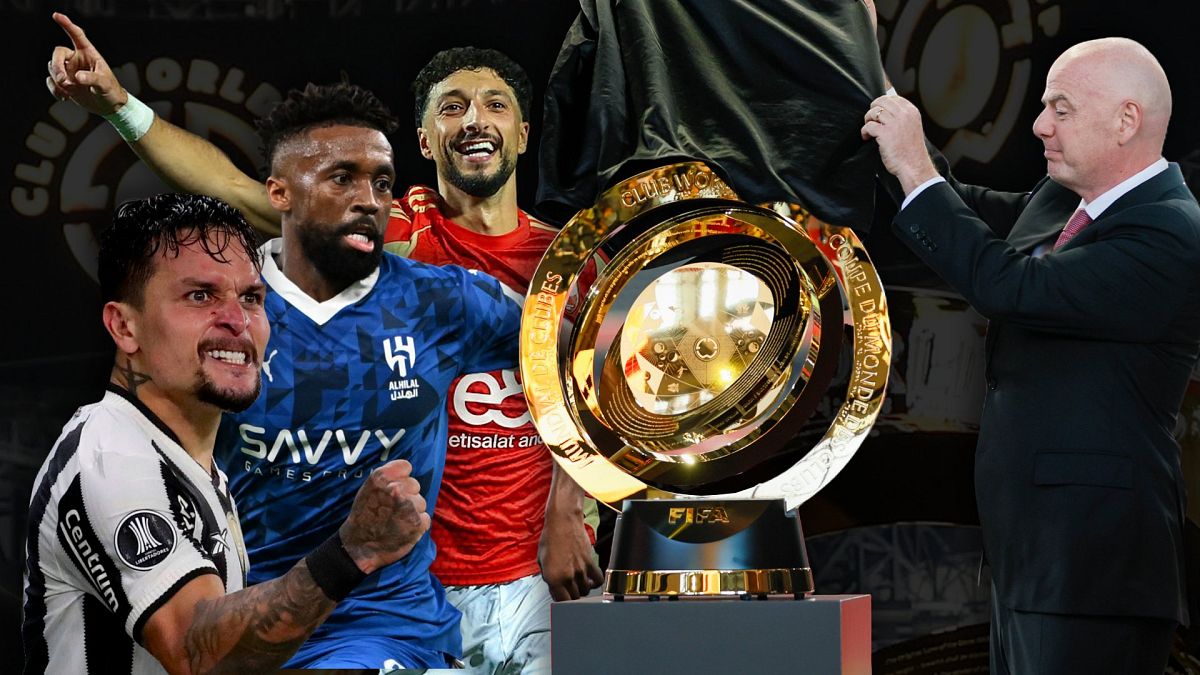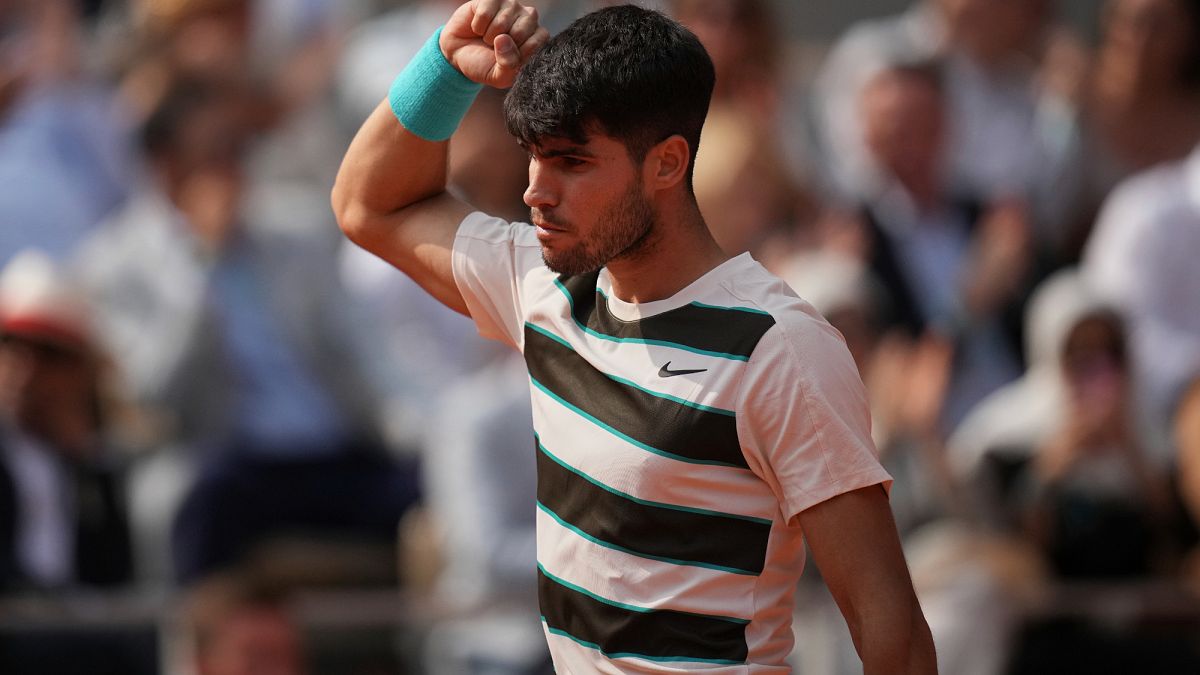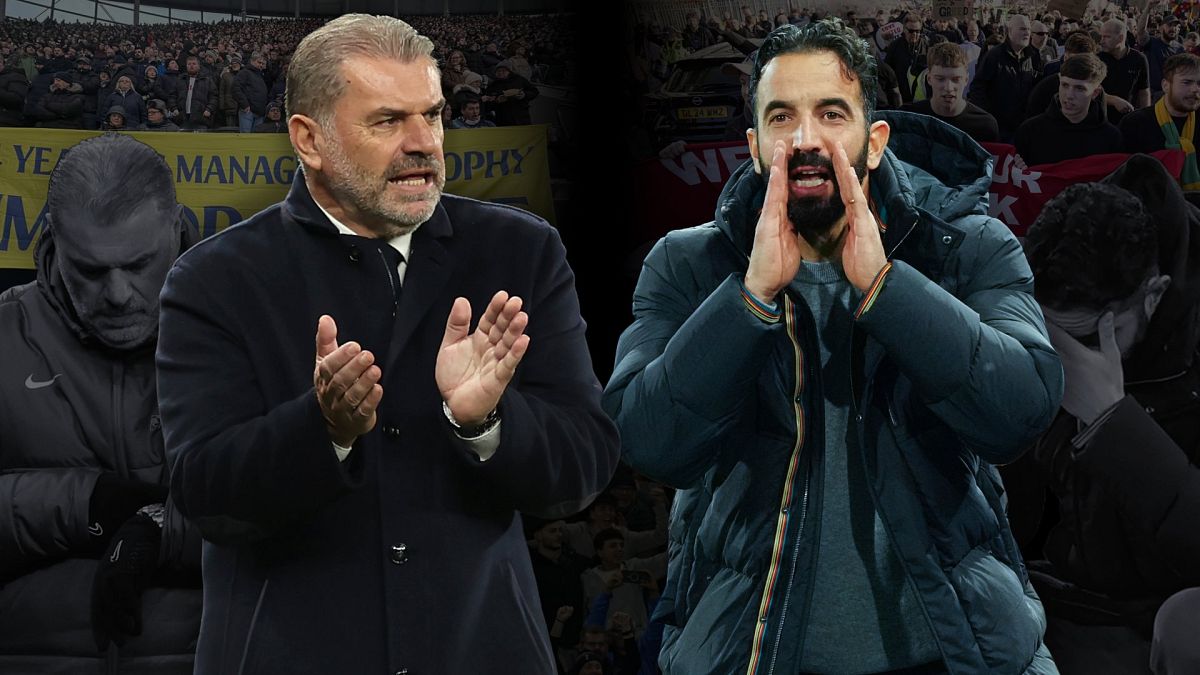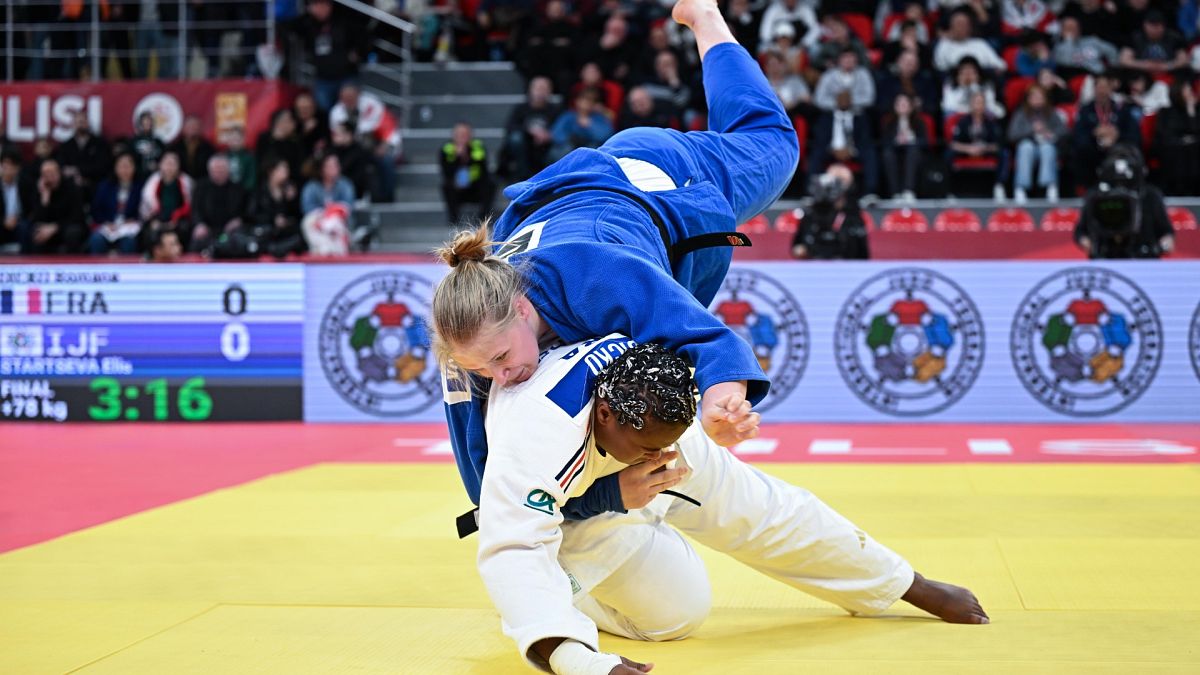‘The secret is passion’: An insight into the life of Cecilia Bartoli
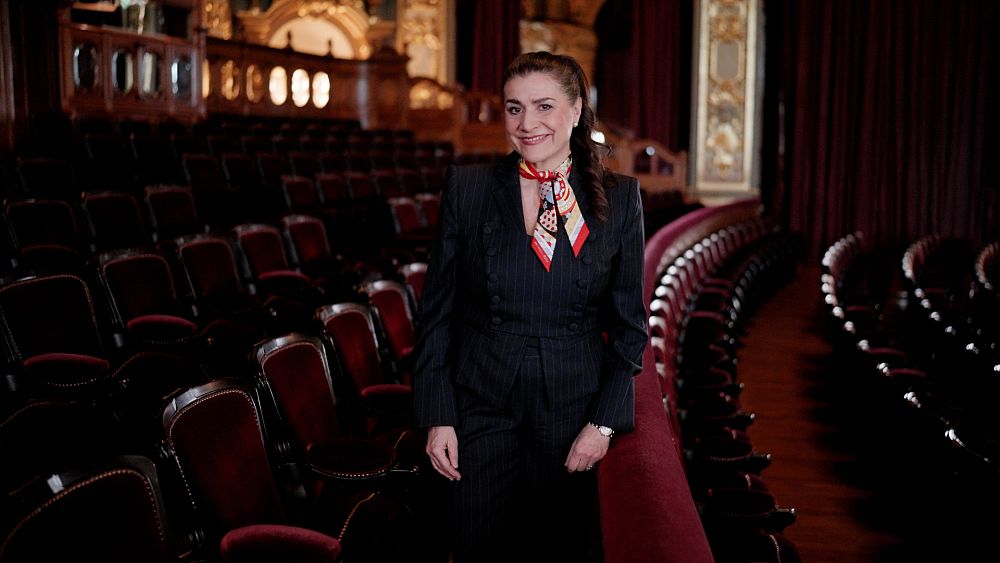
Cecilia Bartoli is one of the most multi-faceted artists in the world, a five-time Grammy Award winner and a visionary artistic director.
In this latest episode of Musica, the legendary Italian mezzo-soprano gives us an exclusive insight into her life as one of the greatest artists of our time.
Musica joined Ceilia in the Italian city of Florence: the birthplace of opera and a cultural centre since the Renaissance. And it was at the Maggio Musicale Fiorentino festival that the legendary Italian mezzo-soprano performed the Baroque masterpiece ‘Alcina’ by one of her favourite composers Georg Frideric Handel.
“Florence is magical, a wonderful city,” Bartoli said. “The very first opera was made and sung right here, in Florence.”
A musical childhood
Named after the patron ‘Saint of Music’, Cecilia grew up surrounded by music. Both of her parents were opera singers. But it was Cecilia’s mother, Silvana Bazzoni Bartoli, who passed on her passion for music to her daughter.
“The beginning was natural really, because my mum sang when I was in her belly. In fact, perhaps it was almost more natural to hear singing than talking in the house,” Cecilia Bartoli revealed.
They share a strong bond, not least because her mother was her only teacher. It was through her mother’s coaching that Cecilia found her unique voice.
“I realised when she was a child that she was very musical,” Silvana Bazzoni Bartoli, Cecilia’s mother, told Musica.
“For me, it was easy to sing the high notes and I taught her to do that. She had a predisposition for agility. When I was playing the piano, she was running away with her voice and I couldn’t keep up with her,” she added.
“She was also clever,” Cecilia said about her mother. “She gave me this solid technique that allows me and has allowed me to sing for 35 years. And I still do.”
International stardom
The Rome-born singer, Cecilia, soon skyrocketed towards international stardom. She is known for her milestone recordings, selling more than 10 million albums and DVDs – more than any other classical artist.
In 2016 Cecilia Bartoli achieved the dream of creating her own period-instrument orchestra, ‘Les Musiciens du Prince’, reviving the original sound of the Baroque era.
“By now it has become a team, a bit like a family,” said Gianluca Capuano, the Principal Conductor of the ‘Les Musiciens du Prince’. “We understand each other musically. Just one look at Cecilia or the musicians and we understand each together.”
“Essentially, we use instruments, copies of instruments, which were used at the time of the composer. So we’re trying to recreate the sound that composer’s contemporaries heard,” Gianluca explained.
“Why is Cecilia so unique? Well, because everything is simple with her. And she has something that all the greats have, which is simplicity,” explained Jean-Marc Goujon, a flautist in Les Musiciens du Prince.
“When she arrives, she automatically captures the light and I would say that each time we play a piece together, it’s different. We are in the magic of the moment of the concert. No two concerts are alike. That’s what makes the magic and has maintained this magic over all these years.”
Musical archaeology: Owing it to the musical greats
Doing the masterpieces justice is a mission dear to Cecilia Bartoli’s heart. She’s also a passionate musical archaeologist.
In libraries, she has unearthed long-forgotten composers and masterpieces.
“It’s curiosity. It was thanks to great musicians who themselves had the curiosity to delve into musical history, and that inspired me to do my own research,” Cecilia Bartoli said. “I think that there is still music to be discovered that we haven’t heard yet and so it is worth the effort.”
Music that was originally composed for the voice of castrati aroused her interest and she lends her voice to some of the masterpieces.
“The program dedicated to Farinelli is special. You have to project yourself into the 18th century,” the legendary mezzo-soprano said.
“Farinelli was the great pop star. He had a flexibility in his voice. He was able to do such magnificent things with great softness, great agility and also vocal fireworks. He could really talk to the instruments of the orchestra.”
From the stage to behind the scenes
Now Cecilia Bartoli has opened a new chapter in her breathtaking career, becoming the director of the Opéra de Monte Carlo, and the first woman in the company’s history to hold this position.
Her new artistic home opened its doors in 1879 and is an architectural jewel by Charles Garnier, the famous designer of the Paris Opera.
“As soon as you go in, you can feel this incredible tradition right away. It’s beautiful. It’s a magical place,” Cecilia admitted.
“It’s the first time I’m leading a theatre. So far, I have directed a very important festival in Salzburg, the Whitsun Festival. But it’s true, directing a theatre is something else and ultimately, the secret is passion in everything. They’re the most important things: vision and passion,” she said.
For her first season opening, she invited the world-renowned French countertenor Philippe Jaroussky.
“I think I was singing with Cecilia even before I met her. But I think I’m not the only singer who feels that way,” he told Musica. “In other words, there was an aesthetic and emotional shock when I discovered these albums. It’s true that I never imagined sharing the stage with her.”
“We have a lot of fun playing together too. There’s a chemistry between all the singers. There’s a will to surpass ourselves for her too, to live up to her confidence. And then to be inspired by what she proposes, which is in any case, I think, unique in the history of music,” Philippe Jaroussky added.
Moving forward, but remembering to look back
Cecilia Bartoli has ambitious plans for her tenure: Her aim is to take the audience on a musical journey through three centuries. Her passion for the stage remains as strong as ever.
“Being on stage, there is nothing like it. There are no words for it, are there?” Time stands still. Everyone holds their breath. You are sent into another dimension. You could even consider it a sacred moment,” she described.
“We have to project ourselves towards modernity, towards the future of course, but while also keeping an eye on the past. The dream is to be here and continue to make beautiful music, to continue this passion and share it.”
Source: Euro News


